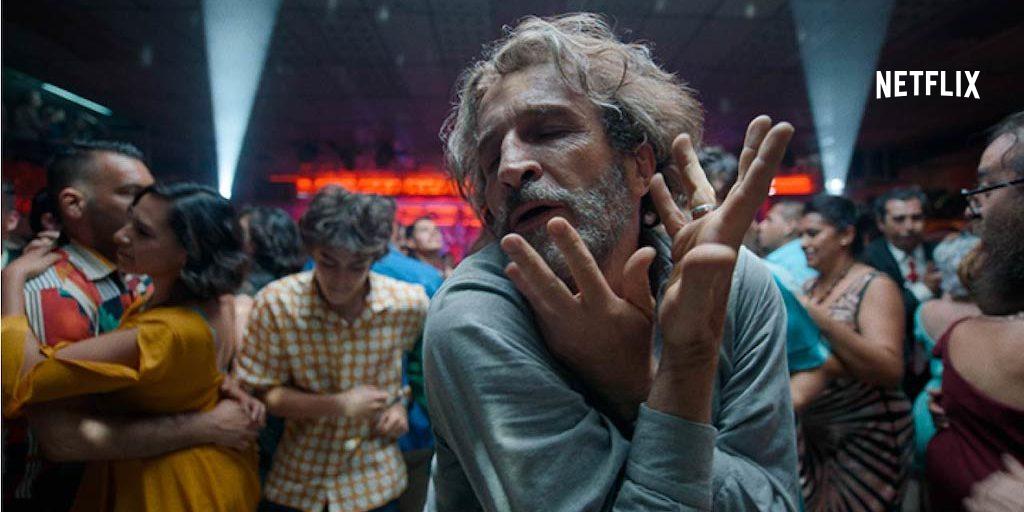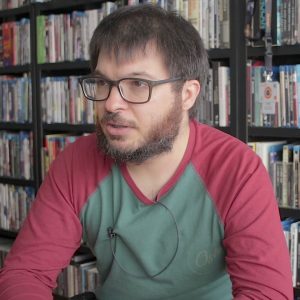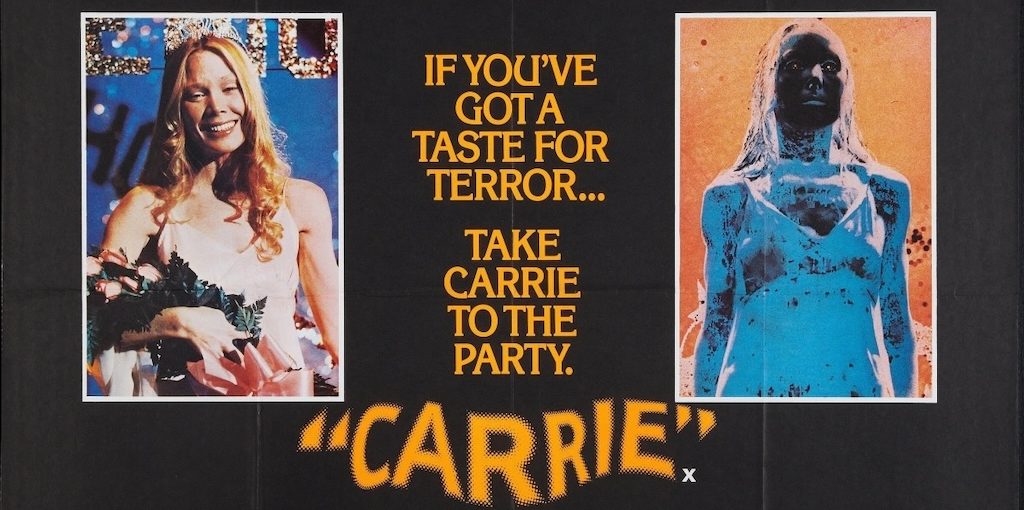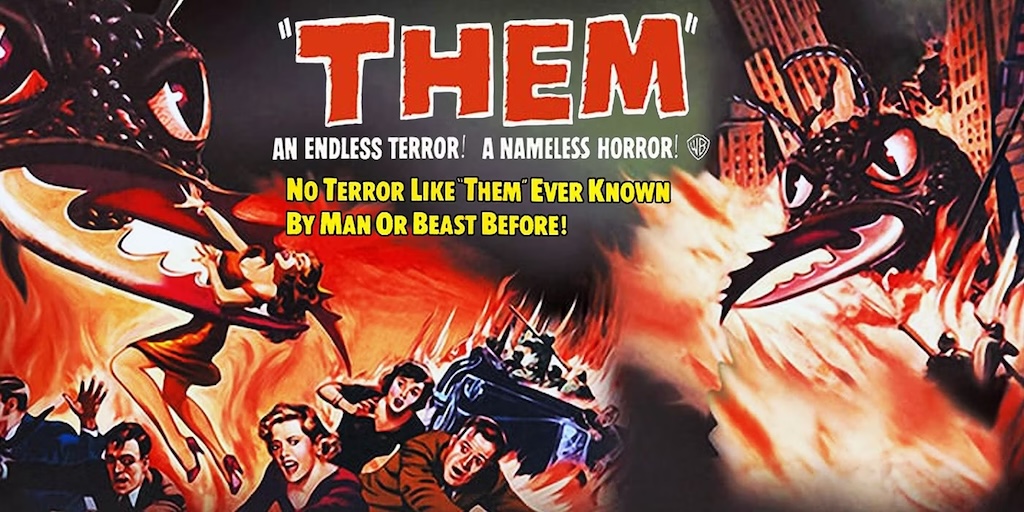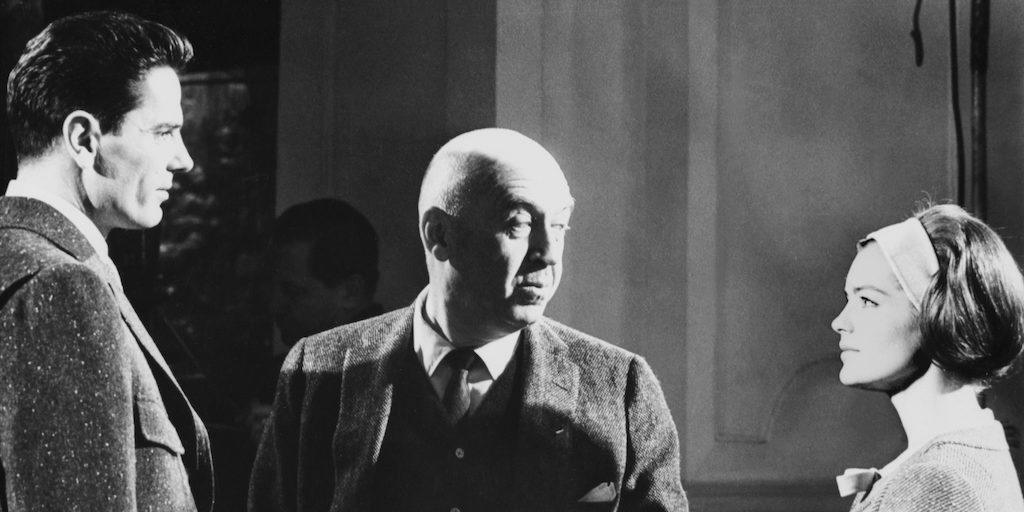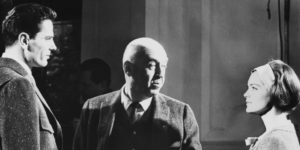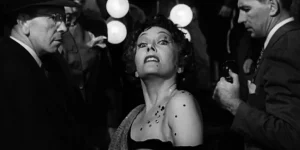TOO MUCH EXPLANATIONS
It must be said that the opening image in Alejandro González Iñarritu’s Bardo is attractive. We see a shadow that leaps higher and higher, like a bird about to take flight. There is a similar beginning like that, and is the one featured in Fellini’s 8½. There we found its protagonist, Guido, flying until being elevated like a balloon. It is not impossible that Iñarritu wanted to throw a cinephile hint; if there is a movie which Bardo has a lot in common with is that one. Same episodic structure, same taste for extravagance; same protagonist, who is, at the same time, a prestigious artist and a man full of insecurities, and can be interpreted as an alter ego of the filmmaker; same interest in producing oneiric scenes, both those that clearly begin as dreams and those that seem to have in the beginning a more down-to-earth characteristic. Even I’m daring to defend Bardo from an objection made towards it: the prospect of thinking that is realistic that a documentarian can be some sort of superstar. I do not think it to be clumsy, but a rather voluntary way of showing us that nothing of what we are seeing is real.
Comparisons are hateful, that is true, but the thing with Bardo is that his Felliniesque inheritance becomes so clear that is almost necessary to measure one movie against the other, and many times such comparison leaves Iñarritu’s film in a rather bad stance.
Let us take for instance two very similar scenes between one film and the other.
In a scene in 8½ the protagonist talks with someone that looks like a film critic defining the movie he made as a “succession of gratuitous episodes, entertaining perhaps for its ambiguous realism” and adds that “the film doesn’t even have the merit of being avant garde, but has all the deficiencies of one”.
On the other hand, in a scene in Bardo, a friend of the protagonist’s, showing himself to be quite unpleasant, starts to talk with him about the movie he made, defining it like a “pretentious and unnecessarily oneiric exercise where everything is said as a metaphor, but without any poetic inspiration.”
Both commentaries work as a clear moment of metafiction. The movie that both the film critic in 8½ and the friend in Bardo are referring to is the one we are seeing in that moment, and the voices of them reflect the fears of its filmmakers of having made a piece of garbage.
However, there is a difference between one scene and the other. In 8½, Guido does not defend himself from the critic’s arguments, does not know anything else to do than stay silent and concerned. At least, the answer to that critic is 8½ itself, being made anyway despite the recommendations of that character about leaving the project. But it is still an insecure reply, of someone who does not know for sure if what he is doing is good or bad.
In Bardo, its protagonist does feel the need to directly answer to his rival at that moment. He disqualifies him and gets angry at him, not before literally silencing him (muting the character’s volume, in one of the film’s many eccentricities)
It is not a minor difference. Guido is a weird character because he is a megalomaniac yet very insecure person in a film like 8½ that shows us the fine and confuse line existing between egomania and frailty. It is a pedantic piece and a modest one at the same time, almighty and fully aware of its own limitations. A movie where Fellini, in his intention of telling everything, does not fully tell it all, and therefore he speaks of his creative capabilities as well of his limitations. Guido’s silence and lack of certainty is one of the elements that contributes all the more in creating that sensation of watching a film that advances as best as it can, as if he were apologizing with his arrogance.
Bardo, on the other hand, has a necessity of filling everything with discourses, conversations, postulates. About Mexico and America, on the limits between documentary and fiction, on American politics and Mexican history. An over explained film even in its original title; Bardo: False Chronicle of a Handful of Truths plays in an evident manner with the line between truth and lies, between dreams and everything that is revealing about them in his fantasy (another very clear theme in 8½, which unlike Iñarritu’s film goes for a title rather ingenious for its brevity).
The curious thing about Bardo is that the very few moments where it finds inspiration are those when things are not loaded with meaning. For instance, the scene where the protagonists starts to dance a version of David Bowie’s “Let’s Dance” at a night club seems a moment of pure freedom taking a breath in a film full of scenes that need to “say something”. It is enough with seeing the tremendous amount of crude metaphors existing in the film, oneiric situations that rather than appeal to subtlety or multiplicity of meanings it appeals to coarse symbolisms, impossible to be interpreted in two different forms. If he wants to tell us the protagonist feels like a boy again when he sees his father, we will see a boy with the face of an adult; if he wants to tell us about the loss of a child during his wife’s pregnancy, we will see an image of an incredible bad taste where a baby that fits in the palm of a hand is left in the water so he can bid farewell by swimming; if he wants to speak about the Spanish conquer, he will put the figure of Hernán Cortés on top of a giant pile of corpses.
It is true that, every now and then, Iñarritu jokes about this possible bad taste, but this is given in a rather sporadic way and the weight of the discourses are way too solemn, way too infected of a self-importance to be redeemed as parody. Added to this, humor is not one of Iñarritu’s strongest suits. Proof of this is a particularly failed attempt at humor. There we see a group of people coming out of an airport forming a line, taking one step at a time like it was an involuntary military parade product of airport bureaucracy. It seems like a humorous suggestion proper of Jacques Tati, although not executed in large wide shots as the French filmmaker would have, but in brief medium shots that ruin any effectiveness the joke might have.
Lack of humor is a constant in this film and it is precisely one of the factors that allowed 8 ½ not to become a self-indulgent disaster. There is a known anecdote about Fellini hanging a sign on set claiming that it must be never forgotten that what he was shooting was a comedy. It is that sensation of generalized humor what also prevents Fellini to rise to the role of thinker in the most solemn and pedantic way imaginable. The problem with Iñarritu is that the idea of being a thinker does not necessarily bothers him, but he rather embraces it. When that happens, his oneiric film is plagued with dreams where the playful element is almost always missing, the mysterious absurdity that constitutes that world that turns on when you go to sleep. The dreams in Bardo are way too talky, way too confident in what they are saying, way too predictable and, therefore, way too boring. Dreams with so much calculation in being transcendent that they conclude with an image of what it seems to be an afterlife. A series of desert shots, resembling a loot to the end of Malick’s The Tree of Life, where the director seems to imagine some sort of limbo of his own. As if this was not enough, that shameful finale ends up ruining even that mentioned opening scene, since that it ends up giving it a possible meaning. Finally, the man jumping high in that desert was nothing more than the soul of that protagonist that either he ends up in that magical place or rather wants to leave it. It is not like something merely beautiful is left that way and cannot be enjoyed without any further ado. It seems that instead of the sign of not forgetting that what was being filmed was a comedy, Iñarritu put a sign during his shoot demanding that everything must have meaning. I cannot imagine a worse principle when it comes to film a series of dreams.
![]()
(México, 2022)
Directed by: Alejandro G. Iñárritu. Script: Alejandro G. Inárritu, Nicolás Giacobone. Cast: Daniel Giménez Cacho, Griselda Siciliani, Ximena Lamadrid. Production: Alejandro G. Iñárritu, Stacy Perskie. Lenght: 159 minutos.

